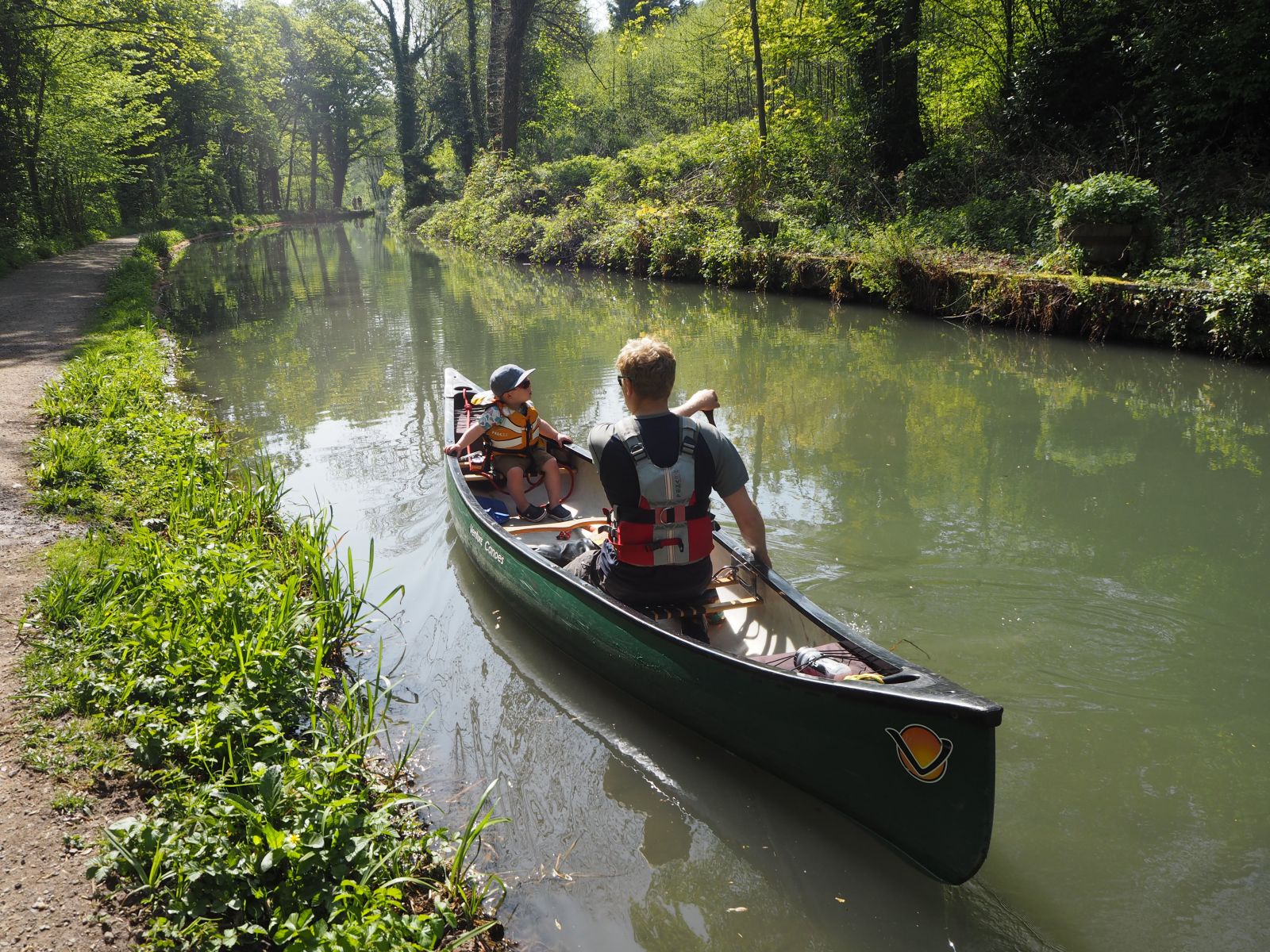Paddling in the Parks
30 May 2018
With it currently being National Go Canoeing week, (27th May– 4th June), British Canoeing Places to Paddle Officer, Ben Seal explains why our National Parks have a role to play in supporting a bright future for fair, shared access to water.
On May bank holiday weekend, I spent a glorious few hours paddling along the Cromford Canal in Derbyshire with my young son. The spring green of the surrounding trees reflected on the water, creating a magical, almost ethereal feel to our journey. Paddling along this peaceful stretch of water in the sunshine, exchanging cheerful ‘hellos’ with walkers and cyclists, bought home once again just how important shared access to our waterways is to everyone.
Canoeing is a vibrant, inclusive and growing activity in England, increasingly enjoyed by people of all ages, abilities and backgrounds. Around 1.9 million people take to the water each year, with 500,000 households now owning a boat. However, a lack of uncontested access to our waterways presents a significant barrier to people going canoeing.
My son and I were in an open canoe; a traditional craft which has been used for thousands of years throughout the world for exploring wilderness areas and quietly observing wildlife and flora. It’s is the earliest known method of travelling on water, causes no erosion, noise or pollution, and leaves no trace of its passing. It offers a unique and special way to view our National Parks.
A day on the water for me is a wonderful way to create lasting memories with my family and friends. From an hour trip to a full weekend of paddling and camping, the chance to get outside and close to nature always puts a smile on my face. Sadly, a lack of clarity in law leaves 96% of our waterways being considered as ‘disputed’. Of the remaining 4%, these are made up of ‘licensable water’, such as canals and a small handful of major rivers like the Wye and Thames. While canoeists believe in their right to enjoy the water, others strongly object.
Although many paddlers use rivers across the UK, they are frequently challenged and sometimes denied access to water. There are increasing numbers of reports where individuals have encountered conflict, or have been threatened with litigation for trespass. Just a few hundred metres from where I was paddling with my son on the Canal is the River Derwent, flowing through one of our most iconic National Parks. This stretch of river is fiercely contested and it it canoeists who seemingly lose out, being told they have no right to enjoy this beautiful stretch of river at any time.

For canoeists such as myself, the waterways are our footpaths and bridleways and we should have an equal right to be free to explore and enjoy all that our waterways have to offer.
A lack of clarity in the law is the single biggest barrier to participation in paddlesport. A lack of clarity in the law leads to uncertainty over knowing where to put our boats on the water without being challenged on our right to do so.
The Places to Paddle team at British Canoeing are working hard to build relationships with authorities, such as the National Parks, to help them understand and address the areas where tensions between riparian owners, angling interests and paddlers occur to ensure everyone can enjoy our beautiful country fairly.
We understand that National Parks Authorities can find themselves in a difficult position with regards to access. Trying to balance their statutory needs to ‘promote understanding and enjoyment’, with, landowners, conservationists and other recreational interests. Access to water is often seen as a complex subject and too challenging to seek resolution. But it need not be so. We are calling on the authorities to act as a broker, to work towards a shared solution based on practicalities, not principles. Not addressing this issue is a huge missed opportunity not only for National Parks, but for the local economy, for health and also for the environment.
DEFRA has acknowledged that ‘the law is unclear’ and that disputes need to be negotiated locally. This is where National Parks amongst others have an opportunity to help lead the way in helping resolve conflict; bringing parties together.
There is a bright future for fair, shared, sustainable access for recreational activity. It has the potential to bring money and jobs into National Parks across the UK. It will support more people being more active, more often and provide wider societal benefits. Importantly fair, shared access to water creates greater engagement, encouraging a deeper respect and willingness to protect our natural environment.
Open access need not be at the detriment of other users, it is about finding a balance and understanding differing needs. It is my hope that in the future, I will have the opportunity to introduce my young family to the remarkable landscapes of our National Parks by canoe.
By Ben Seal, British Canoeing
National Go Canoeing Week 2018 is perfect for everyone from complete beginners to seasoned paddlers. British Canoeing want everyone to take part! There are a range of starter sessions, challenges, events and guided tours taking place nationwide, as well as ideas for independent adventures. Join in by getting on the water and helping us reach our 45,000 mile target!

